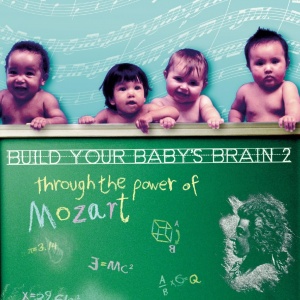The Mozart Effect
Listen to the Recess! Clip
| Author | John Cech |
| Air Date | 10/7/1999 |

The Mozart Effect Transcript
Brief Sound Clip
This is the music that may make your score, on average, 8 or 9 points higher on a section of the Stanford Binet I. Q. test — according to three University of California at Irvine researchers. This is the music of the Mozart Effect, that has gotten quite a bit of attention of late, just do a keyword search on the internet and you’ll find enough intriguing material on the music-mind connection to keep you reading all weekend.
The argument, thoroughly oversimplified of course, is that Mozart’s or other classical music will make you measurably brighter. And if it will do this for the average college student, just imagine what it will do for infants? The research ultimately prompted a 1998 proposal by the Governor of Georgia, Zell Miller, to send a CD of classical music home with every newborn in the Peach State — and he even persuaded record companies to donate music for the Georgia CD.
It didn’t take long for the companies themselves to begin producing their own compilations of the music of Mozart and other composers, and in the past year or so, there’s been an exponential growth of classical CD’s for kids that promise that their music will at least help, to borrow the title of one of these CD’s, to “Build Your Baby’s Brain.” This particular CD comes with instructions for everything from helping to limber up a baby’s muscles (in time with the Overture to The Marriage of Figaro), to letting your toddler tap out rhythms with a wooden spoon to the “Rondo Alla Turca.”
Brief Sound Clip
But my favorite is, again to quote the CD notes, “when fatigue or hunger makes your baby’s universe seem to fall apart, Mozart can help to restore order.” and they offer three tracks to “settle things down.” Here’s part of one, a section of the Cavatina that’s recommended as a perfect accompaniment for strained carrots or casava.
Brief Sound Clip
The workings of music, I think, will always remain mysterious, but if we need to argue that we’ll have smarter kids if they listen to (and learn to play), say, Mozart’s G-minor quintet, one of the most beautiful pieces of music ever written, and this helps to put music programs back in the curriculum of every elementary, middle, and high school in this country, then so be it. Because music like this will also help to do something equally important for our children: open their hearts and deepen their souls.